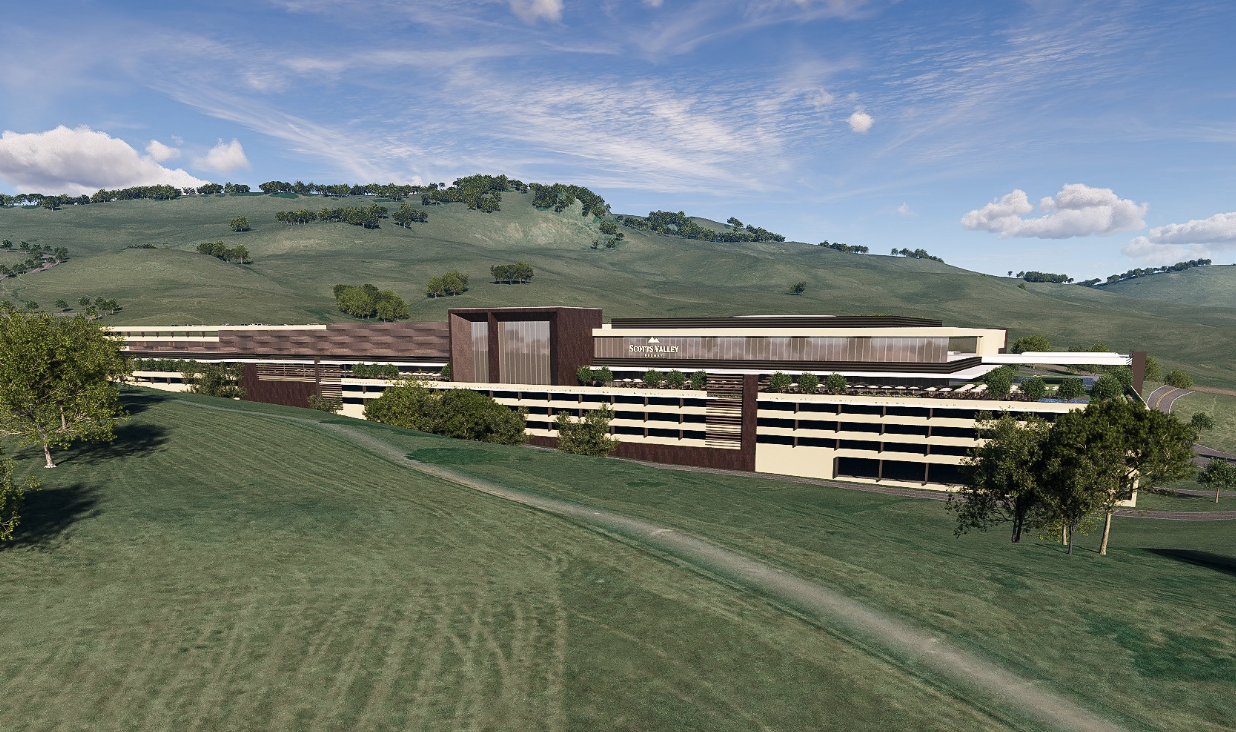
- Details
- By Kaili Berg
Last week, the Yocha Dehe Wintun Nation publicly released its official comments on the Department of the Interior’s (DOI) Environmental Assessment (EA) of the proposed Scotts Valley Band of Pomo Indians casino project in Vallejo, CA.
The Yocha Dehe tribe, which has strong ancestral ties to the region, criticized the EA as an inadequate and deeply flawed document that fails to meet the basic requirements of federal environmental law, including the National Environmental Policy Act (NEPA).
The Scotts Valley Band of Pomo Indians, who do not have ancestral ties to the Vallejo area, first proposed building the off-reservation casino with the backing of Las Vegas developers in 2016. The EA was published on July 8, 2024.
In its critique, the Yocha Dehe tribe described the EA as an “indecipherable mess” consisting of outdated information, incomplete data, and numerous inaccuracies. The tribe also highlighted that some of the site plans included in the EA were so poorly drafted that they depicted water flowing uphill.
According to a statement, the tribe’s primary concern revolves around the project’s potential to cause irreversible environmental damage and desecrate a Patwin cultural site.
The Yocha Dehe argues that the EA’s analysis was rushed and aimed at reaching a pre-determined outcome rather than conducting a genuine assessment of the environmental impacts.
The tribe’s comments assert that the EA grossly overlooked the project’s effects on endangered species, wetland habitats, and air quality. The analysis of traffic impacts was based on nearly two-decades-old data, leading to significant misrepresentations of the potential congestion and safety hazards.
The Yocha Dehe asserted that EA also failed to address critical issues related to grading, drainage, stormwater management, and wildfire risks and that the project’s engineering plans are “physically impossible.”
The tribe further stated that the EA excluded the voices of Patwin tribes and neglected to incorporate important Indigenous knowledge into its analysis.
The tribe also criticized the EA for omitting mention of the Solano Ranch project, a mixed-use development that is proposed for the same site, as well as a planned hotel and residential homes.
Yocha Dehe has joined a coalition of local tribes, municipal and county governments, and environmental groups in calling on the BIA to prepare a comprehensive Environmental Impact Statement.
Such an assessment, the tribe argues, would provide a more thorough and unbiased evaluation of the project’s potential impacts and consider less damaging alternatives.
Yocha Dehe’s comments come amid increasing opposition to the Scotts Valley casino project. Governor Gavin Newsom recently voiced his concerns, adding weight to the calls for a more rigorous environmental review.
Native New Online reached out out to the Scotts Valley Band of Pomo Indians for comment but did not hear back by press time/
More Stories Like This
In photos: Residents of Western Alaska Share Storm Damage of Ex-Typhoon HalongWhere the Buffalo Roam: Tribes Lead Bison Return for Food Sovereignty
Invasive fruit fly hits the Yakama Nation’s huckleberry fields
Former US Attorney General William Barr Challenges Religious Claims Over Oak Flat Mine
'Prepared to dig in for the long haul.' | Miccosukee Tribe, Environmental Groups, Dig in For Legal Fight Amid Alligator Alcatraz Setbackk
Help us tell the stories that could save Native languages and food traditions
At a critical moment for Indian Country, Native News Online is embarking on our most ambitious reporting project yet: "Cultivating Culture," a three-year investigation into two forces shaping Native community survival—food sovereignty and language revitalization.
The devastating impact of COVID-19 accelerated the loss of Native elders and with them, irreplaceable cultural knowledge. Yet across tribal communities, innovative leaders are fighting back, reclaiming traditional food systems and breathing new life into Native languages. These aren't just cultural preservation efforts—they're powerful pathways to community health, healing, and resilience.
Our dedicated reporting team will spend three years documenting these stories through on-the-ground reporting in 18 tribal communities, producing over 200 in-depth stories, 18 podcast episodes, and multimedia content that amplifies Indigenous voices. We'll show policymakers, funders, and allies how cultural restoration directly impacts physical and mental wellness while celebrating successful models of sovereignty and self-determination.
This isn't corporate media parachuting into Indian Country for a quick story. This is sustained, relationship-based journalism by Native reporters who understand these communities. It's "Warrior Journalism"—fearless reporting that serves the 5.5 million readers who depend on us for news that mainstream media often ignores.
We need your help right now. While we've secured partial funding, we're still $450,000 short of our three-year budget. Our immediate goal is $25,000 this month to keep this critical work moving forward—funding reporter salaries, travel to remote communities, photography, and the deep reporting these stories deserve.
Every dollar directly supports Indigenous journalists telling Indigenous stories. Whether it's $5 or $50, your contribution ensures these vital narratives of resilience, innovation, and hope don't disappear into silence.
 The stakes couldn't be higher. Native languages are being lost at an alarming rate. Food insecurity plagues many tribal communities. But solutions are emerging, and these stories need to be told.
The stakes couldn't be higher. Native languages are being lost at an alarming rate. Food insecurity plagues many tribal communities. But solutions are emerging, and these stories need to be told.
Support independent Native journalism. Fund the stories that matter.
Levi Rickert (Potawatomi), Editor & Publisher

